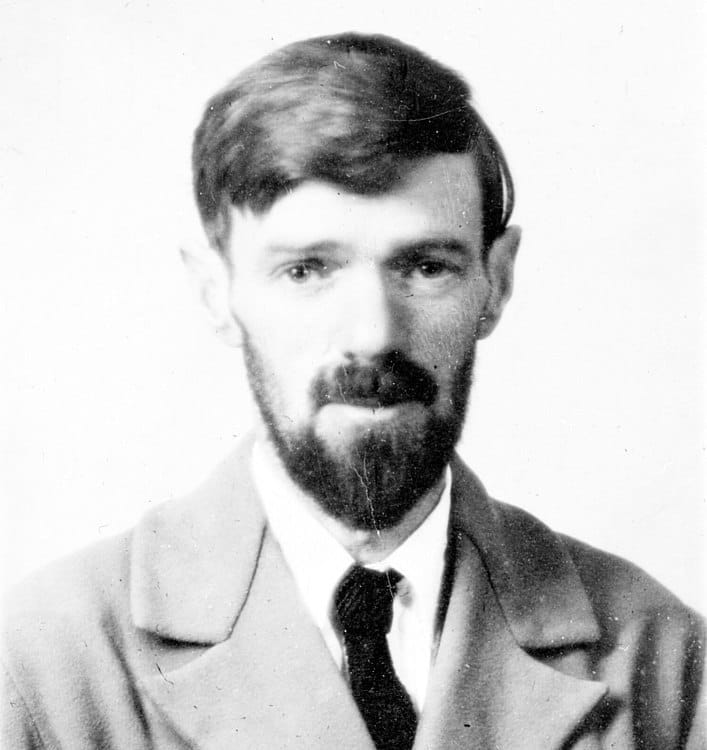Hector St. John de Crèvecoeur (1735-1813): Left-Hemispheric

McGilchrist writes about the left hemisphere's love for abstraction. Because it is the hemisphere of action ("it's tasked with tasks," is my (oh-so-clever) way of putting it), it prefers abstract ideas that give it guideposts for action. It keeps things simple, which makes things more efficient.
A simple example: If you own a business and set up the principle that all minorities are worthless, you don't need to waste time interviewing, hiring, and training them (civil rights laws notwithstanding . . . I'm just giving an example here . . . don't call your local Attorney General). It streamlines the hiring process so you can get onto more profitable activities. And if your principle is correct, it works out better in the long term as well.
The problem is, your principles are never true. They might be more or less true, and they might be truer in some circumstances and less true in others. There are nuances that every principle misses, so even though they might makes things more efficient, which is good, they come at the cost of accuracy . . . of truth.
Phony Essays
"Hector St. John, you have lied to me. You lied even more scurrilously to yourself. Hector St. John, you are an emotional liar." D.H. Lawrence
Enter Hector St. John de Crèvecoeur. He was a French-American writer, diplomat, and farmer who migrated to America, became a naturalized citizen, married an American, and worked as a farmer and surveyor. He is best known for his literary work Letters from an American Farmer, which was published in 1782, to the acclaim of Europe's romantic and reforming classes. Hazlitt, Godwin, Shelley, Godwin, and the English romantics in general loved the Letters.
Two hundred years later, D.H. Lawrence savaged Crèvecoeur's work in Studies in Classic Literature, which remains the most entertaining literary criticism ever written.
Why did he savage Crèvecoeur? Because Crèvecoeur didn't write honestly. He wrote from abstract notions and ideals instead of the reality of living the agricultural life, which isn't, and never has been, primrose.
"Intellectualize" is how Lawrence refers to Crèvecoeur's literary sin. He said Crèvecoeur intellectualized the concept of "Nature-Sweet-and-Pure," reduced it to a few mental laws, then applied them. Instead of trying to convey reality, Crèvecoeur was conveying abstract ideals.
Crèvecoeur was an artist as well as a liar, otherwise we would not have bothered with him. He wanted to put NATURE in his pocket, as Benjamin put the Human Being. Between them, they wanted the whole scheme of things in their pockets, and the things themselves as well. Once you’ve got the scheme of things in your pocket, you can do as you like with it, even make money out of it, if you can’t find in your heart to destroy it, as was your first intention. So. H. St. J. de C. tried to put Nature-Sweet-and-Pure in his pocket. But nature wasn’t having any, she poked her head out and baa-ed.
This Nature-sweet-and-pure business is only another effort at intellectualizing. Just an attempt to make all nature succumb to a few laws of the human mind. The sweet-and-pure sort of laws. Nature seemed to be behaving quite nicely, for a while. She has left off.
That’s why you get the purest intellectuals in a Garden Suburb or a Brook Farm experiment. You bet, Robinson Crusoe was a high-brow of high-brows.
Phony Fiction
This tendency in writers is the first literary sin. Too often, writers set out to make a point. They have an idea and they write an essay or even a short story to promote or justify it, instead of writing an essay or story to explore reality.
It's a sin in non-fiction. I think Flannery O'Connor might have argued that it's an even bigger sin in fiction. Consider this passage from Mysteries and Manners (one of the best books ever about the art of writing and a steal at $6.99).
[I]n the best stories it is something organic, something that grows out of the material . . .
It is a good deal easier for most people to state an abstract idea than to describe and thus re-create some object that they actually see. But the world of the fiction writer is full of matter, and this is what the beginning fiction writers are very loathe to create. They are concerned primarily with unfleshed ideas and emotions. They are apt to be reformers and to want to write because they are possessed not by a story but by the bare bones of some abstract notion. . . .
It is always necessary to remember that the fiction writer is much less immediately concerned with grand ideas and bristling emotions than he is with putting list slippers on the clerks.
